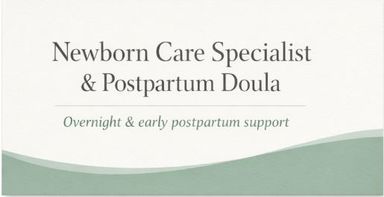A quick guide to your nanny's meal etiquette
It would be fortunate for nannies when bringing their own lunch to work, to also be able to eat it; after all a nanny takes the time to prepare and paid for it. Unfortunately, it is frequently for nannies when taking lunch to work to end up tossing it to the trash because they simply couldn't find the time to eat it; needless to say the waste translates into financial loss for the nanny. That is why, the family should never mind that their nanny eat a bite from their pantry.
Some families provide their nanny 15 to 30 minutes to take a decent meal break but the case is very rare.
Some employers may volunteer their nanny a meal break when they feel they can safely get away from their own work to keep their child with them while their nanny eats. However, parents might not be able in a daily basis even for a few minutes to give their nanny enough time to finish a meal.
Normally no one talks about the nanny's meals; in fact, the nanny schedule for eating a meal is lacking from the whole employment set-up and for the most part no one knows when nannies eat. There are nannies that work without eating a single bite or drinking a glass of water all day and they do such for years without their employers ever caring if they ate or not.
Some nannies eat while preparing meals for the children but for safety reasons this is not a good idea for parents (or the nanny) since the nanny’s mouth-moist can easily mix with the baby’s food. For the same reason when nannies feed children they should not take anything to their own mouths because babies moist shall never mix with the nannies moist especially during the baby’s (or the nanny) meals. In reality, babies and children sneeze, cough and spit over their food and it is most likely that when their nanny eats along with them all that moist also reaches the nanny's meal.
Most nannies might eat while attending their duties at work; they may have a bite here and a bite there and a sip here and a sip there but most of the time the glass of water or the piece of sandwich remains in the mind of the nanny or far away somewhere in the kitchen.
Most employers choose to buy the favorite meals, snacks and drinks of their nanny. In some homes, there might be prohibitions of food, like pork and sesame seeds, eggs or lactose and parents may ask the nanny not to bring any food at all; they prefer to include in their shopping list the meals for their nanny making sure everything in the kitchen is safe to eat for the entire family; and when nannies take the children out of the house all day, parents shall provide their nanny an stipend to cover every one’s meals and drinks those times the nanny is not able to pack lunch, snacks and drinks for some reason.
Pantry access – Don’t mind if your nanny takes a snack or a bite from your kitchen.
Meal breaks – Offer 15–30 minutes for the nanny to eat uninterrupted.
Avoiding contamination – The Nanny should not eat while preparing or feeding the children’s meals.
Stock her favorites – Include the nanny’s preferred snacks and drinks in your shopping list.
Honor dietary needs – If your home has restrictions, be mindful of your nanny and provide approved food for her to eat at work.
Stipends – When out all day with children, cover meals and drinks.
Respect her time to eat – A well-fed nanny is a better‑focused and more energetic caregiver.
